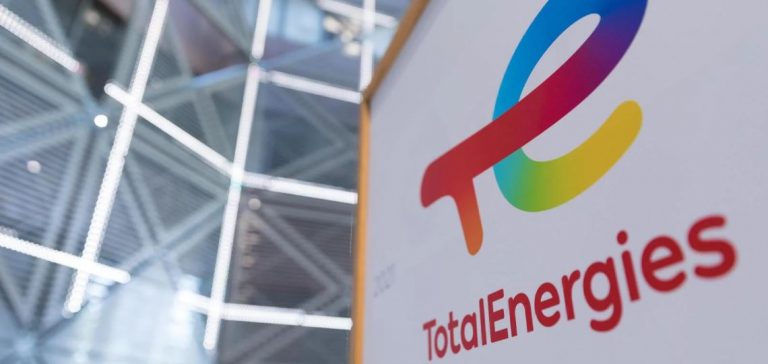### **BODY OF THE ARTICLE**
This announcement occurs in a context of declining energy prices, including oil, gas, and electricity. TotalEnergies sought to reassure its investors by revising its hydrocarbon production growth forecasts upward to approximately 3% per year until 2030. This increase is primarily due to liquefied natural gas (LNG), a highly sought-after resource in Asia and by Europeans seeking to compensate for the drastic reduction in Russian land-based gas deliveries since the war in Ukraine.
Expansion of Oil and Gas Projects
This ambition exceeds the initially set target of 2 to 3% per year until 2028. It is based on the launch in 2024 of six new oil and gas projects located in Brazil, Suriname, Angola, Oman, and Nigeria. These projects will enable the maintenance and extension of the growth target until 2030, with growth expected to exceed 3% for the years 2025 and 2026, according to a company statement.
To justify this prolonged increase, CEO Patrick Pouyanné emphasized the natural decline of existing oil fields and the rising global demand for oil. “We must therefore continue to invest in oil,” he stated. He added that “the reality is that oil demand is increasing by just under 1 million barrels per day” and that “so far, we do not see a real impact from the penetration of low-carbon technologies.”
Energy Strategy and Investments
TotalEnergies is also investing in the development of renewable electricity, particularly wind and solar, combined with flexible storage solutions such as batteries or gas-fired power plants to address their intermittency. The goal is to achieve a production of over 100 terawatt-hours (TWh) by 2030, with 70% from renewable sources and 30% from gas-fired power plants.
The group plans net investments of between $16 and $18 billion per year from 2025 to 2030, with approximately $5 billion dedicated to low-carbon energies. However, TotalEnergies has indicated flexibility to reduce its net investments by $2 billion in the event of a significant drop in oil prices.
Reactions and Future Perspectives
Following the launch of a more than $10 billion oil mega-project in Suriname, the CEO affirmed TotalEnergies’ commitment to continue producing low-cost oil while developing renewable energies. This strategy also aims to protect against significant drops in oil prices, which fell below $70 per barrel last month, although tensions in the Middle East have contributed to a price rebound.
TotalEnergies plans to sign long and medium-term LNG sales contracts, with agreements for 4 million tonnes this year, to reduce its exposure to price fluctuations. The group is also considering a dual listing on Wall Street in addition to Paris, although Paris will remain the primary stock market for TotalEnergies’ stock offerings.
Implications for Shareholders and the Market
The year 2024 could mark a return to normal after record profits in 2022 and 2023 during the energy crisis. TotalEnergies plans to repurchase $8 billion worth of shares in 2024, a move that could be affected by a potential taxation of these operations in France, similar to that existing in the United States. If confirmed, it will be “difficult to oppose,” admitted the CEO, given the existence of this taxation in the United States.
Patrick Pouyanné concluded by reassuring investors about the group’s strategy, stating that “Paris will remain the primary stock market for TotalEnergies’ stock offerings.” This strategic direction aims to balance the growth of fossil fuel production with investments in renewable energies while meeting the expectations of financial markets and shareholders.






















